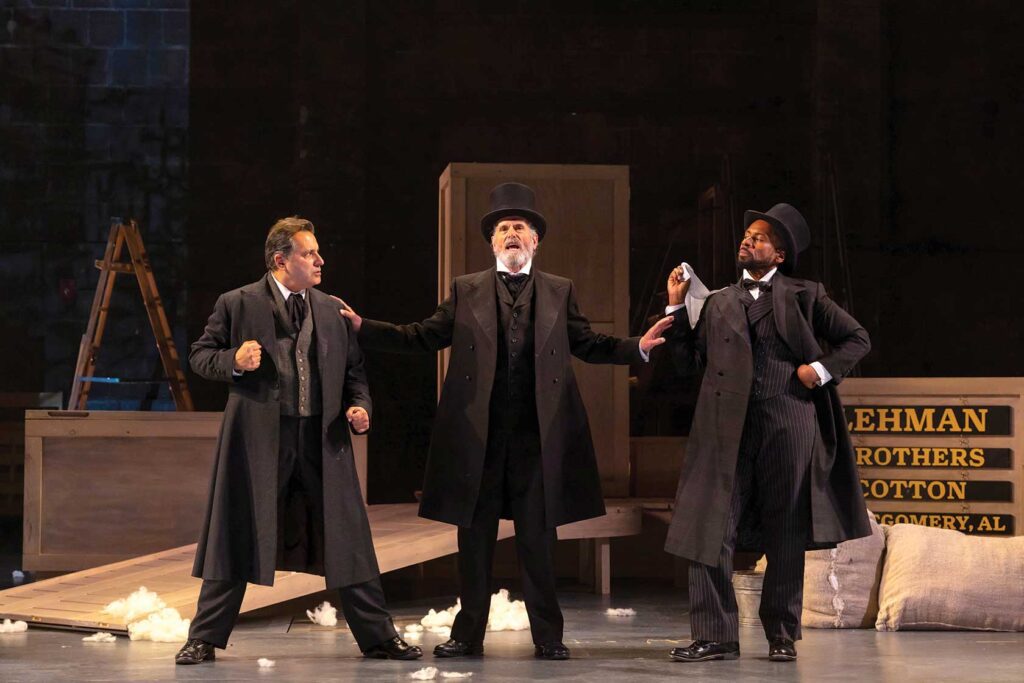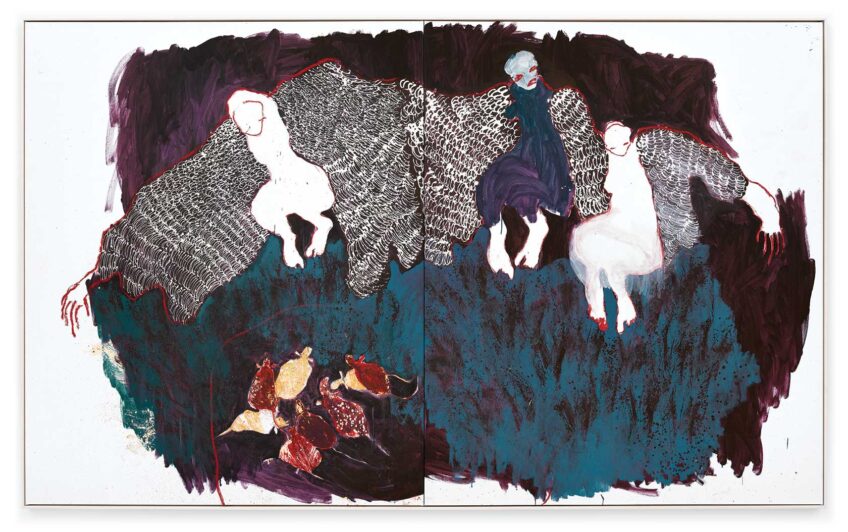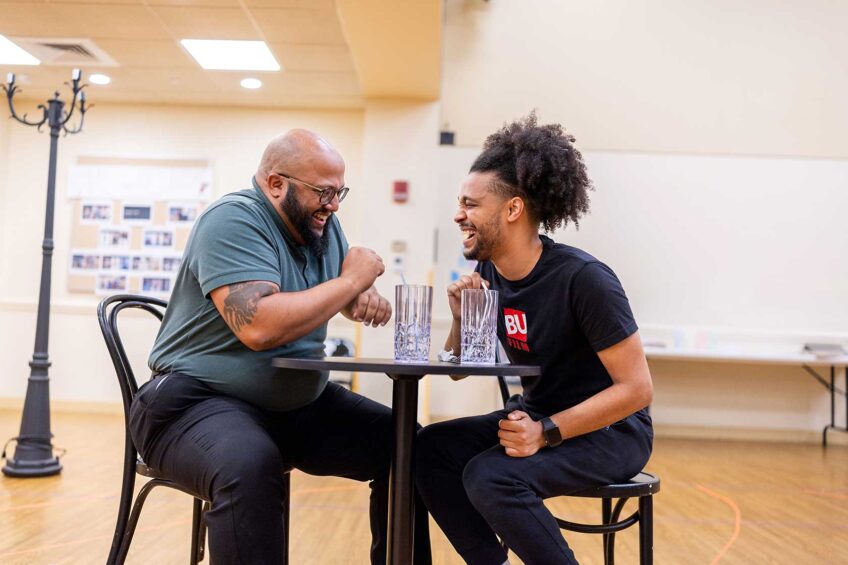‘The Lehman Trilogy’ — epic saga covers 163 years of a dynasty’s road to ruin

In “The Lehman Trilogy,” three Jewish brothers leave their home country, Bavaria, to make a better life in America. Their tale becomes a parable of ambition run amok.
Written by Italian author Stefano Massini and first published in 2014, the play has been translated into 24 languages. In 2018, an English adaptation by Ben Power debuted at the Royal National Theatre, London, and its 2021 Broadway premier won the 2022 Tony Award for Best Play.
Its three acts follow the brothers and their descendants from their success as dry goods merchants in 1840s Montgomery, Alabama, to the 2008 collapse of their Manhattan-based enterprise, Lehman Brothers, Inc., then the fourth-largest investment bank in the United States.
The first American production of “The Lehman Trilogy,” directed by Carey Perloff, is on stage at the Huntington Theatre in Boston through July 23.
Running three-and-a-half hours with two intermissions, this eloquent and absorbing production engages the audience with poetic language laced with the lexicon of dealmaking, Biblical references and Jewish rituals, as well as insider family talk, including the brothers’ nicknames, “Head” (Henry, the eldest), “Arm” (Emanuel, the middle brother), and “Potato” (Mayer, the youngest).
Three convincing actors play the brothers and more than 15 additional roles. They address the audience directly and speak of themselves as if describing others.
The play begins as Henry, played by Steven Skybell, steps off the boat in the Port of New York. His black jacket smeared with dust, he begins his American odyssey with a prayer of thanks and introduces himself as “The son of a cattle merchant, a circumcised Jew.”
India-born Firdous Bamji performs the role of Mayer, a wily negotiator. Bamji also deftly caricatures 12 candidates as they undergo rapid-fire auditions by Philip (played by Skybell) as he selects a bride. As Bamji portrays the aged Mayer, his poignant stillness is accented by Robert Wierzel’s agile lighting.
Speaking by phone, Joshua David Robinson, whose roles include Emanuel and Mayer’s son Herbert, says, “As actors, we’re not often asked to show all our tricks. This production is both a marathon and a sprint. Over three-and-a-half hours, each of us gets to play a bunch of different characters.”
The spare, expressive set designed by Sara Brown uses wooden crates to evoke first ship cargo, later, containers for cotton, and in the last act, skyscrapers. Projections by Jeanette Oi-Suk Yew conjure such images as a clipper ship, Hebrew texts, and the rapidly multiplying zeroes of ever-larger transactions. Costume designer Dede Ayite outfits the brothers with black jackets. The outline of a cotton branch is imprinted on the back of each jacket like a brand, a reminder that their cotton trade was born on the backs of enslaved Black people.
Joining the actors on stage is multi-reed instrumentalist Joe LaRocca. Clad in period street attire, he plays melodic lines composed by Mark Bennett as well as riffs from spirituals.
The production expands the tale of a family empire into an epic of America. “The family’s connection to slavery as cotton traders and owners of slaves is not in the play,” says Robinson. “As a Black person, I’m interested in this, too. We can’t rewrite the play. Instead, we tell a larger story with our casting and staging. We hope our production sparks a lot of discussion and reflection.”






